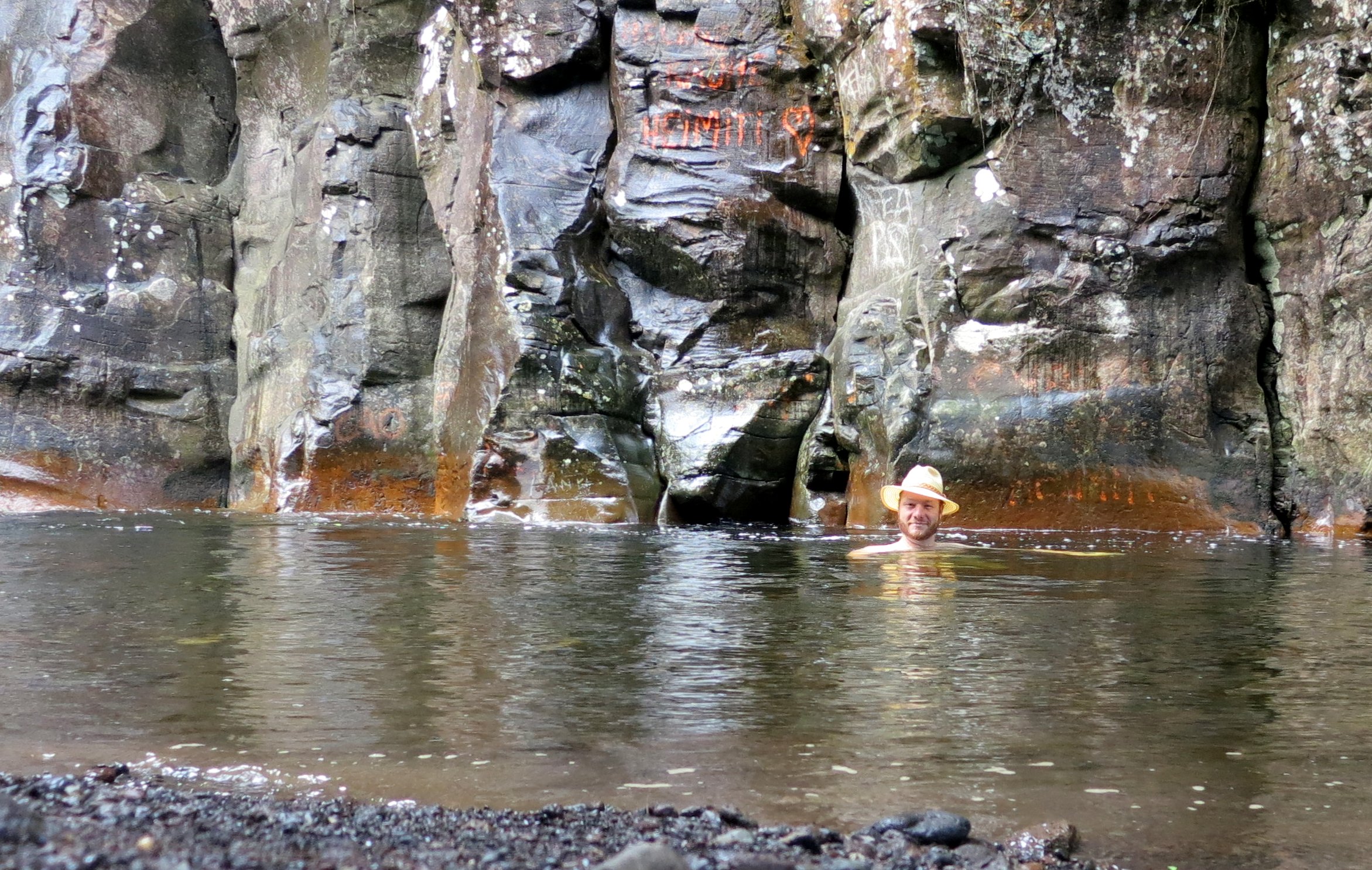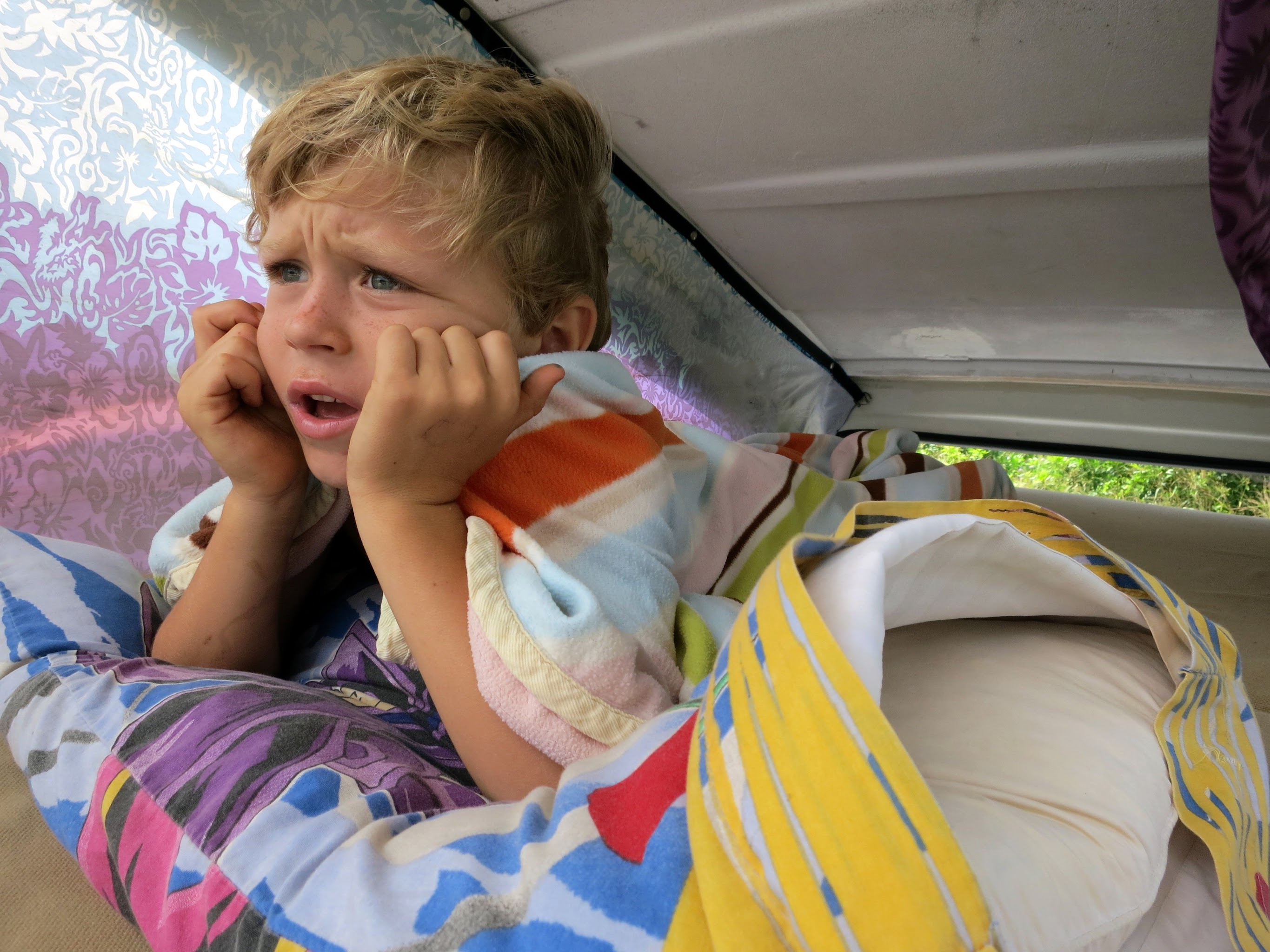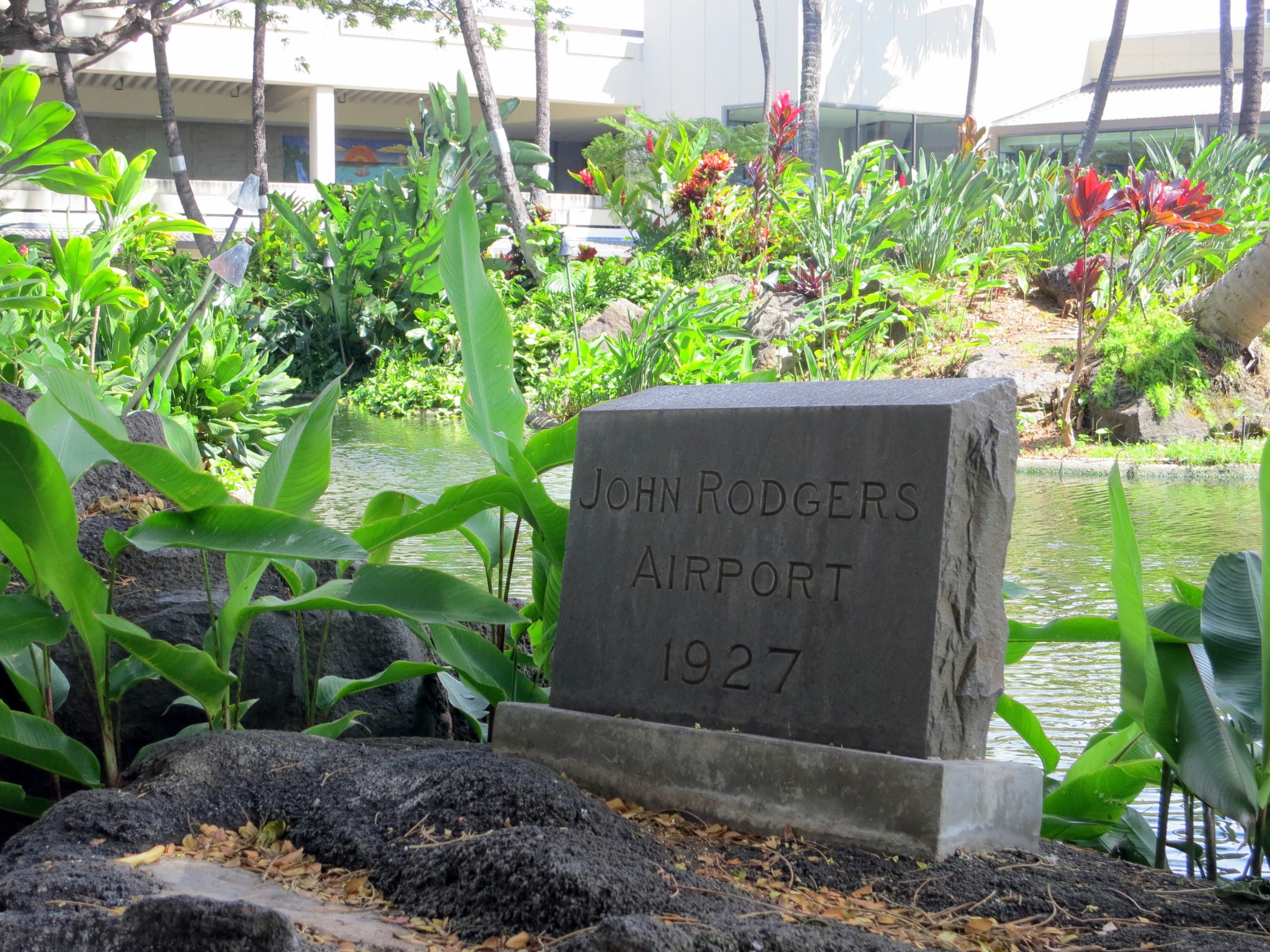I heard it more than once. A Polynesian is outside and it starts pouring rain down on his head and he mutters to himself… “paradise”. Westerners have been travelling to the Polynesian’s lands since the late 18th century and telling them that they live in paradise. I think what was originally meant was “you live in a place where there is more food than you can eat and you need not fear a cold winter”. And perhaps also “your women wear few clothes”. But today, in the developed world, there is more food than any of us can eat, we have reliable heating in the winter, and the women are far less modest than they used to be.
I spent a week on Hiva Oa, in the Marquesas Islands. Although its the second most populated island, it is as rural a place as you will find anywhere. For some here paradise would be the chance to watch movies in the same year that they are released. There are whole valleys on Hiva Oa that could swallow a man for decades if he wanted peace and quiet.
The town, Atuona, has 2 places to eat, 1 post office, and several shops. There is one road that matters and everything is along that road. Its a place where the shops run out of stuff, only to be refilled when the next shipment on the Aranui 3 arrives.
I think lots of residents cut out the middle man and order shipments of what they need from abroad. Do not worry about those without the money to place orders. The ocean is positively crowded with fish. The jungle has been tended by generation after generation so that many of its plants bear fruit: Banana, Papaya, Guava, Breadfruit, Coconut… And the hills are crawling with goats.

A local dish is Poisson cru au lait de coco. The ingredients are raw yellow fin tuna, fresh coconut milk, lime, tomato, green pepper, cucumber, all chopped and combined, and served cold with rice. The fish, limes and coconut are easily had, but the rice and vegetables are dear, so the dish tends to skimp on those items. When I had it there was more than a pound of fresh tuna in my bowl. It was fabulous, but the fish alone would cost me 20-30$ in San Francisco.

Hiva Oa is a place of great beauty, but its true charm is its isolation. My return trip was like reading a book backwards, travelling from the isolated Hiva Oa to populous Tahiti, then to metropolitan Oahu, and finally to glittering San Francisco. When I arrived in Papeete on Tahiti I thought “here is a massive city”. The place is crowded and polluted, noisy and dangerous. Wikipedia just set me straight: the population is around 100,000, smaller than the podunk backwater where my parents live in Georgia. The people of Hiva Oa who grow restless and want more in life than rural obscurity think of Papeete as the big city. They send their kids there to get an education. The children often stay. Or even move on to the big cities of New Zealand and Hawaii.
I have family on Oahu and have visited many times. There is a disease there, called “rock fever”. It is the desire to get away from the limitations of the island and visit a real city. Los Angeles. San Francisco. New York. So it happens that now Polynesians are coming to us to say that our land is paradise. Perhaps when stuck in traffic we should mutter to ourselves… “paradise”.
While in Tahiti I met many Marquesans. They arrived on Tahiti speaking French and Marquesan, but had to learn Tahitian. The languages are similar, but not the same. I toasted a Marquesan in his own language and I think it endeared me to him. The next day he took me out fishing on the reef. We used hand lines, and caught a number of small reef fish. I also hooked into two sharks, each time very relieved when the line snapped.
The fringing reef is one huge advantage that Tahiti has over the Marquesas Islands. It means calm inshore waters and marvelous snorkeling. As soon as I got to the island I took a bus to the quiet end, and booked a room at Pension Bonjouir. The place is an overpriced barely controlled chaos, but this goes largely unnoticed because nearly every guest has been visiting for many years. I felt like a random and forgotten guest at a family event. In the end my room cost twice the advertised price because of necessary extras, and they didn’t take credit cards for payment. It was a farce.

But the location is stunning. As soon as I got there I was out snorkeling the reef. It was amazing. Everything was new and strange and vibrant with color. Later I hiked back into the jungle during a rainstorm. There is a rough trail marked with strips of plastic. Because the trail crosses the river and the rain was quickly turning the river into a torrent, I found myself essentially swimming to the waterfall. But it was worth it. Bamboo and orchids lined the canyon and finally the large waterfall poured into a bottomless pool carved into the volcanic bedrock.
Leaving Tahiti’s backwater proved difficult. I needed to catch my midnight flight on Saturday, and though there was supposed to be bus service it was cancelled because of the election for president of France. I had to hire a cab instead. The cab ride turned into a tour as my cab driver was a native and a history enthusiast. He knew the story behind each town name. Papeete, for instance, means “bowl of water” because in the monsoon it floods and drains very slowly. In exchange I explained what Portland and Oakland meant.
My flight had me in Honolulu by early morning. If Papeete after Atuona was a shock, Honolulu was more of a shock. A real city. A place with interstates. No more delightful french greetings. I was back in the US of A. A cool breeze gave me a chill, a sensation that I had forgotten. A short couple of days visiting friends and swimming with sea turtles and I was back on a plane for San Francisco. By now I was ready, and the vast sea of lights lining the entire bay was no shock.
But the interstate drive from the airport at terrible speeds and in traffic at 3 a.m. was a little hard on my nerves. I am glad I returned slowly. I suspect that if a person could fly from Atuona to San Francisco, they would drop dead on arrival, like a fish dumped into an aquarium at the wrong temperature.

























































